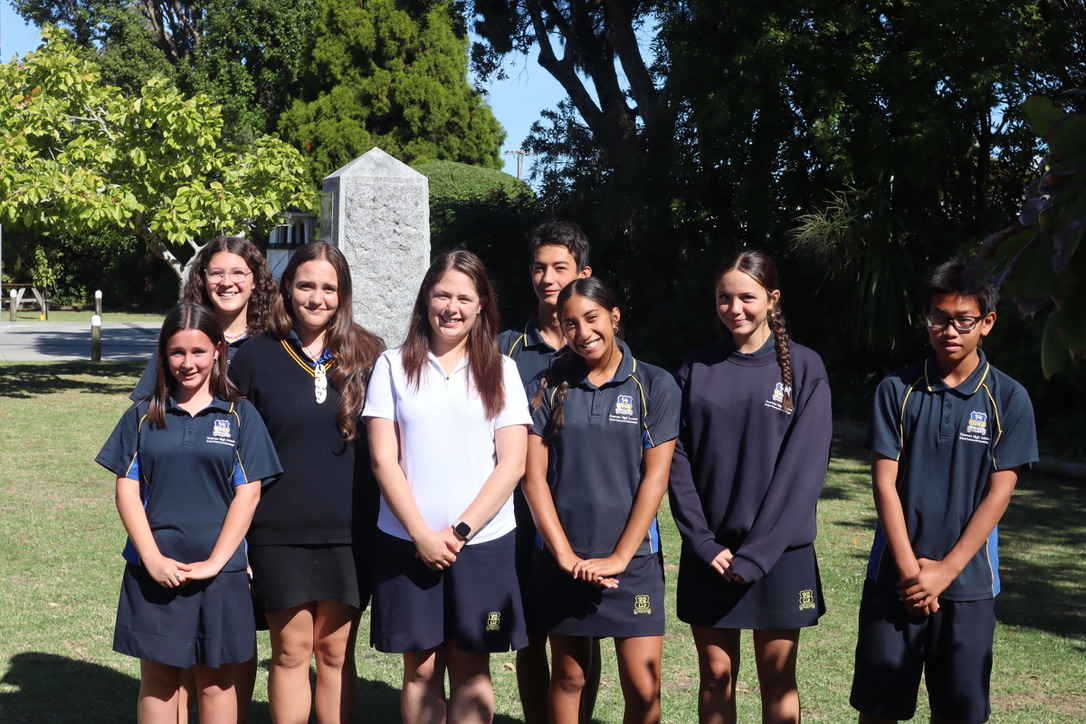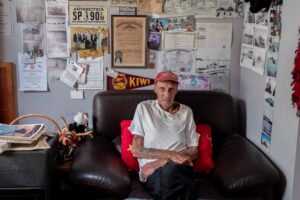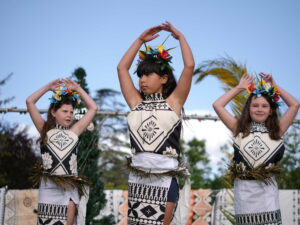Leadership is an important part of Thames High School.
It is something the school encourages students to do in many ways, including a new junior leadership programme, a head Manukura Māori student leader, and a new peer support initiative.
Student senior leaders noticed there was a missed opportunity for junior students who came from leadership roles in primary school, but had to wait until years 12 and 13 before they could carry out responsibilities as leaders.
Deputy head students and senior student leadership team members Troy Costello, 17, and Kayla Speed, 17, told The Profile the group of senior leaders created the junior leadership team known as Manukura Teina, made up of 16 year 9 and 10 students.
“They are here to help the senior leaders with whatever needs to be done, giving them responsibilities and a leadership role to step up to through their time as Manukura Teina.”
All the Manukura Teina were paired up with the senior leaders, and throughout the year would communicate and offer help to the senior leaders with whatever needed to be done, they said. “We want to help them build confidence in themselves and in talking in front of people, get them out of their comfort zones, and try new things.
“These could be our future senior leaders of the school, and by being able to mentor them, they get to learn so much from us and our mistakes.
“Our senior leaders get to inspire the younger students,” they said.

Another leader at the school was head Manukura Māori (Māori leader) for 2025 Ora Wiki.
Ora wanted her peers to know her as someone who was approachable and there to support all students in her position as Manukura Māori – “that is my job and why I am passionate about being a leader”.
Her goals for the year were to “create a safe place for our Māori students to confide in when they have any issues, but to also empower Te Ao Māori and our Māori students in the kura”. One way Ora was able to develop her leadership was by attending a leadership camp at Wharekawa Lodge last month, organised by Whangamatā School and Thames High.
There she learned how other student leader teams operated to create events for their students, how to speak confidently in public, and also to prioritise looking after oneself, she said.
But the things Ora said she looked for in a great leader were kindness, empathy and strength. Her advice for others who wanted to become leaders was to never be afraid to step up and out of their comfort zone, she said.
Another way students were invited to step up was through a new initiative being set up called He Taringa Whakarongo, A Listening Ear – which was a network of students interested in supporting each other.

Staff member in charge counsellor Kylie Finch said more than 20 year 10-13 students wrote applications to be considered for the role of tuakana.
“Tuakana-teina is a Māori concept of support. Historically the tuakana was an older, more knowledgeable family member that would impart knowledge to the teina (younger person),” she said.
“These days the tuakana (more knowledgeable person) does not need to be older, can be a peer, but has more knowledge in some area.”
The role for tuakana was to be a listening ear for students wanting to talk to someone around their own age, Kylie said.
“Anyone at school or in the school community can refer a student they think might benefit from a listening ear. Students can refer themselves also.”
One student said they wanted to be considered for the role because “it makes me feel good” to help others.
“To be a tuakana for He Taringa Whakarongo would be a great opportunity for me to make connections with others, and to make others feel heard, respected, and to have someone that they can trust,” they said
But the main outcome Kylie hoped would come from the initiative was for students to feel cared about, to feel supported at school and in the community and to “know their wellbeing is important to us”.



